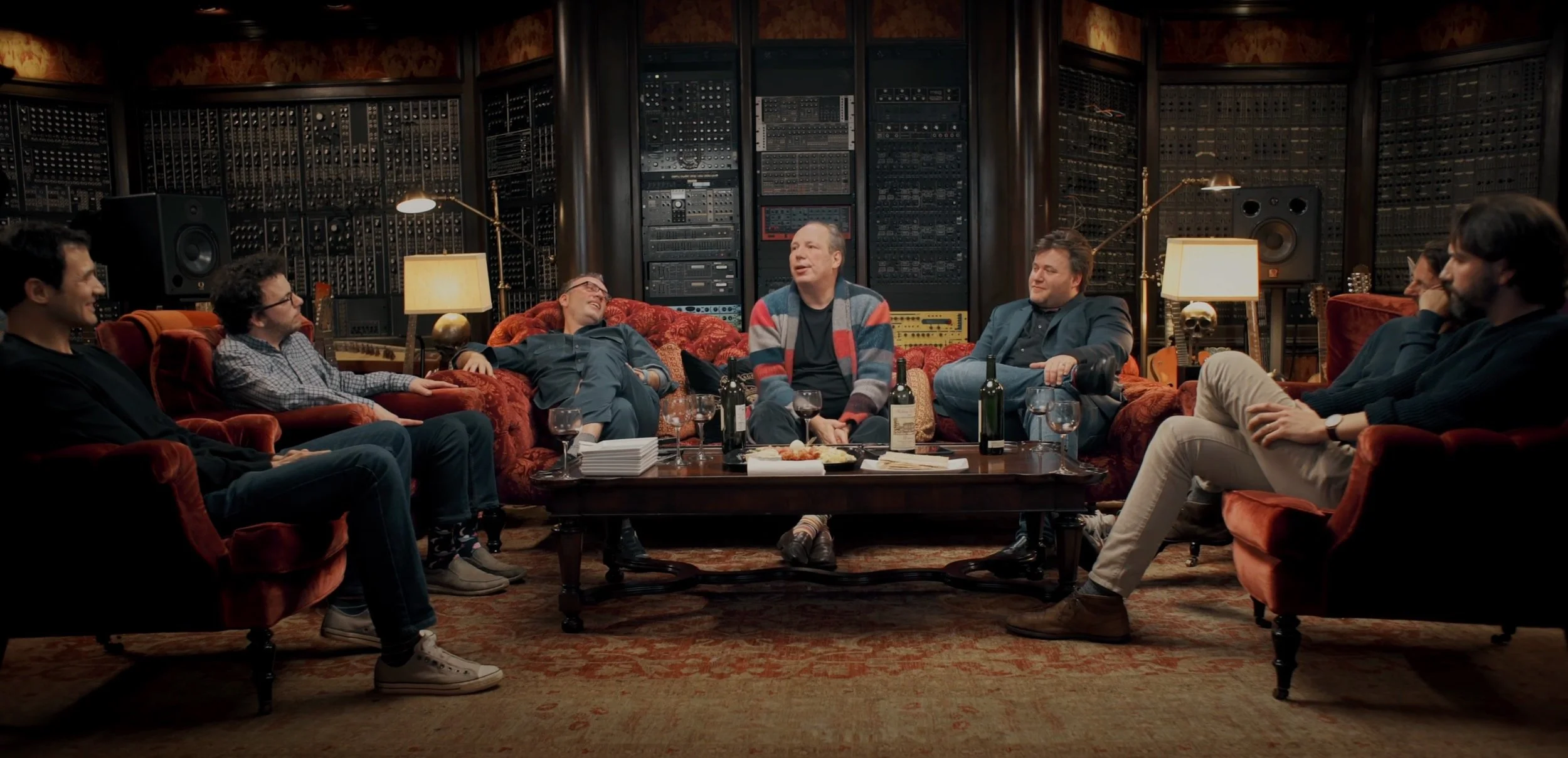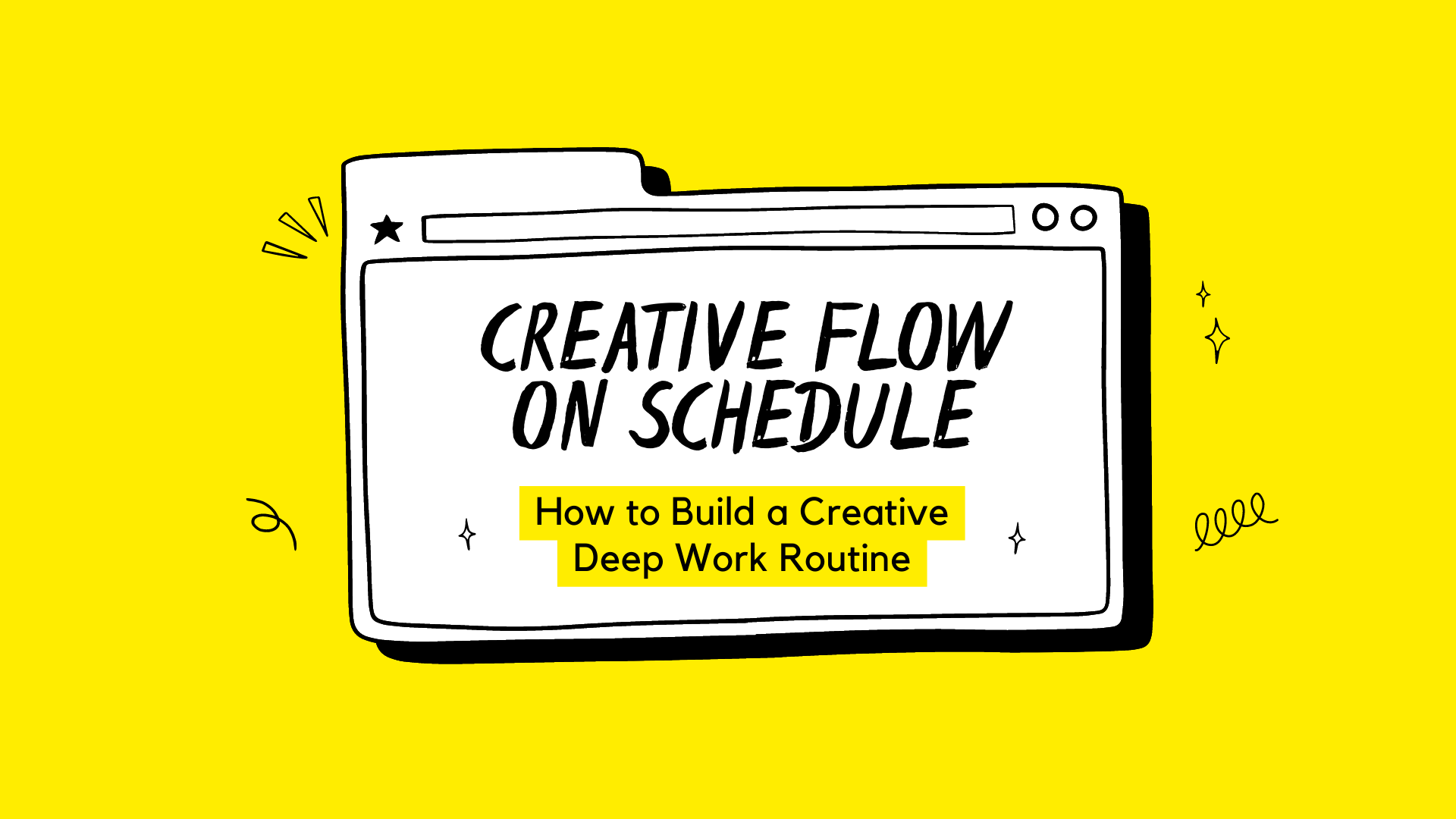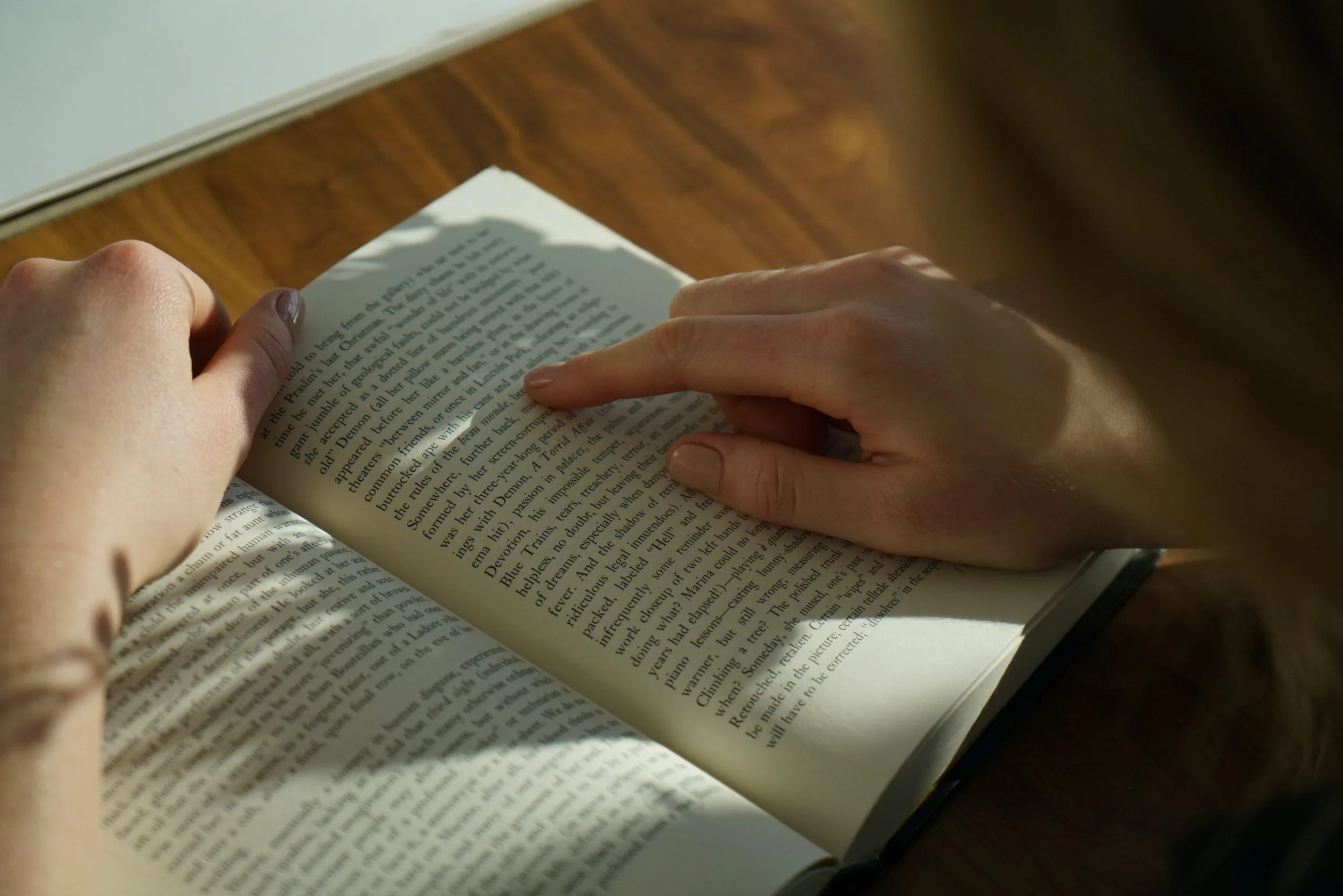Timeless advice for creators
The life of a creator can feel lonely. But you are part of a long history and thriving community of creators—writers, musicians, filmmakers, artists. In these articles, I share examples, principles, and frameworks to help you become a better creator. Sign up to get these sent to your email each week.
Use This Practice to Have More Bursts of Creative Insight
Joshua Waitzkin, author of the beautiful book The Art of Learning, is a man with a singular list of accomplishments.
Waitzkin started playing chess at six years old almost by accident, and was immediately recognized as a prodigy. At seven he was the top ranked player at his age in the country. He went on to win numerous championships, and became a celebrity after becoming the subject of the feature film, Searching for Bobby Fischer.
In a rare twist, Waitzkin then trained professionally in martial arts in his twenties, becoming the world champion in Tai Chi push hands—a rare accomplishment for an American. He followed this by becoming a black belt in Brazilian jiu-jitsu and opening a gym in New York City with the great Marcelo Garcia.
Who Are Your Heroes’ Heroes?
The late Kobe Bryant exerts a massive influence on young basketball players today through video footage of his talks and interviews.
Bryant’s focus on mental toughness, continuous improvement, and a relentless work ethic has inspired countless young athletes to dedicate themselves to practice and preparation.
But when asked, Bryant talked openly about how he modeled his own game on the great players who came before him, like Michael Jordan.
Serena Williams is a living legend to countless professional tennis players today. But Williams drew inspiration from her predecessors Billie Jean King and Martina Navratilova.
This is the Golden Rule of Collaboration
Most people in the film industry who have heard of Maui-born film director Destin Yori Daniel Cretton want to find a way to work with him. Most who’ve worked with Cretton want to work with him again. Why? It’s of course because of his immense talent and craft at filmmaking.
It’s also because of how he treats people.
The Creator's Suit of Armor
Sometimes, when you have a big creative project to work on, a mountain to scale, you have to do something extreme.
In order to make progress on her groundbreaking essays, poetry, and other writing, Maya Angelou famously rented a hotel room and forced herself to write. She had all the art taken off the walls, and refused to let the staff change the sheets (because she never slept there). " I go into the room and I feel as if all my beliefs are suspended," she said. "Nothing holds me to anything."
The Artist's Recreation
When you are in the middle of a creative project, pay attention to what sort of rest and recreation is good for helping you finish a piece of writing, a painting, a music track, a design.
Maybe it’s sitting on a park bench, walking on a gravel road with your dog, or hiking a ridge. Maybe it’s driving to a nearby city to sit in a cafe for an afternoon and taking the long way, or biking on the back roads. It could be just doing the dishes, or knitting. Maybe it’s mowing the lawn or tending your garden.
Go Where the Action Is
Sometimes you just need to go where the action is. To put yourself “in the vicinity” of a hot artistic scene.
Bob Dylan moved to Greenwich Village in the early 1960s to be near the folk revival, and to seek out his hero Woody Guthrie.
Madonna moved to New York City in the late seventies and performed in clubs, eventually becoming a worldwide pop sensation.
Jackson Pollack, Patti Smith, Andy Warhol—not one of these artists was born in New York City. Each made the decision to move there.
Make Gifts and This Will Happen
What makes someone feel compelled to share your work with all their friends? A spirit of generosity.
And when it comes to generosity, Derek Sivers is legendary.
After a career as a professional musician, Sivers’s company CD Baby made it possible for thousands of independent bands, including mine, to sell our CDs in the early 2000s.
When he sold CD Baby for $22 million, he gave it all away, putting the proceeds in a charitable trust to benefit musicians.
They Didn't Steal Your Idea
Between 1610 and 1612, sunspots were independently discovered by at least four different astronomers in England, Frisia, Italy, and Germany. None knew of the others’ research.
Oxygen was discovered in 1773 by Carl Wilhelm Scheele. One year later, and without knowledge of Scheele’s discovery, Joseph Priestley also discovered oxygen.
How to Handle Critique while Avoiding Soul-Death
When early reviewers give you “notes” or other constructive feedback on your work-in-progress, they don’t typically just tell you what’s wrong. Often a reviewer will also tell you how they think you should fix the problem they identified. They tell you how they would fix it.
This is a vulnerable moment for the nascent creative seed that you have been cultivating. Critical feedback has the potential to blast the seed right out of the ground, disintegrate it, and scatter its torn fragments to the winds. To avoid this, you need an approach to receiving critical feedback.
Are You Creatively Lonely?
So many artists are lonely. It’s a self-inflicted exile.
Composers struggle alone. Painters grapple at the canvas but end up grappling themselves. We feel like we have seized control, but control has seized us.
The story we make up about creative life is that it is cheapened when we have help. The critics will say that you’re not good enough to do it on your own.
Cultivate the Unconscious Solution
As a creative person, you've likely had the experience of struggling with a thorny, immovable problem or puzzle: how to organize a painting, a piece of music, a piece of writing. How to kill off a character in your screenplay. What metaphor to use in your story. Which path to take on your next project. What your next project should even be.
And you’ve also likely experienced the futility of trying to force a solution. Of going to sleep hopeless and distraught, with a sense of despair.
Only to find that when you wake, the perfect answer to your question has been miraculously presented to you by your unconscious mind.
What Is a Creative Deep Work Routine?
As a creator, you can win the creator’s daily struggle and increase your creative output by building a Creative Deep Work Routine.
What is a Creative Deep Work Routine?
The concept of Deep Work comes from Cal Newport, in his book Deep Work. Newport defines deep work as:
“Professional activities performed in a state of distraction-free concentration that push your cognitive capacities to their limit. These efforts create new value, improve your skill, and are hard to replicate.”
The Creator's Daily Struggle
Another morning and it’s there again. That Resistance. Those distractions. That hope of an easy way out, that avoidance. That wishful, irrational thought.
Maybe today I won’t have to work for my art.
Maybe I don’t have to seek out the Muse. To make any effort. ”Please, just let the Muse seize me,” we cry internally. Seize me from my bad habits. From my social feed, my Netflix account, my over-scheduled life. Rip me from my self doubt, my procrastination. Kicking and screaming, just save me from my own apathy.
From my own lack of preparation.
Be "Annoying"
So many artists are crippled by fear. Fear that we will "annoy" our followers through self-promotion. Fear of imposition. Imposter syndrome. Fear, ultimately, that we won't be able to make a living for ourselves and our loved ones through our art. It is so emotionally exhausting!
Here's a lens that has made marketing much less exhausting for me, because it takes the spotlight off of me, and throws it back onto my listeners:
Instead of talking constantly about what you do in your marketing, talk constantly about your customers' problems and frustrations.
When Your Shot Arrives, Respond Like This
A couple years ago, Billy was just a ski instructor and recent college graduate who wanted to be a writer. After becoming interested in Holiday’s books (Obstacle Is the Way, Perennial Seller, and others), he sent Ryan an email thanking him for his work, and offered to help out on any projects Ryan might have for him. He sent the email and moved on with his life.
Then Ryan wrote back.
Creators: Remember This Quote When You Just Can’t Start
For creators, sometimes the hardest thing is just to start.
We plan, we prepare, we tidy up. Maybe I need to build a better chapter template for my book. Maybe I need to do more research. Maybe I need to go to the store to get different paints. Maybe I should search for a new sonic plugin that will really make this track sound great. I think if I could just tweak my desk setup, I could really get some good work done.
Some planning can help you fly further when doing your creative deep work. But too often, planning can be an excuse. It’s tangible, tractable, satisfying—and deadly to your creative production.
How Writers Should Be Using AI Right Now
Artificial intelligence is having a moment right now, especially if you are a professional creator. Especially if you are a writer. In this article, I want to propose one way that authors can utilize AI writers ethically—saving time and producing more writing, while saving money—by using AI writers as research assistants.
Reading Tip: Always set a timer, and read a complete passage in one sitting.
In this installment of my reading advice for college students, I share two connected strategies to get more out of your reading in less time.
The first tip is to decide how long you want to read, and set a timer. Having a timer running will help you stay on task and avoid distractions such as checking email, social media, or YouTube.
Avoid trying to set Herculean goals that are impractical. If you say you are going to read for 2 hours straight, your brain is going to think that a quick break can’t hurt anything. But you can probably convince yourself to focus for 30 minutes on reading with no distractions, and complete focus.
Reading Tip: Aim for Understanding, Not "Reading"
In my previous post, I shared my overall advice for college students who want to spend less time reading while getting more out of what they read. Now I want to follow up with the most important mindset shift to make when you are moving from high school to college reading assignments.
The goal of a reading assignment is not simply to read all the words from beginning to end and take scattered notes on random elements that you think might be important.
Instead, the goal is to uncover the author’s argument, and be able to restate that argument briefly in your own words.
How do you know when you have understood?
Reading Advice for College Students
After weeks and months of research, reading, and–as it turns out–practicing, I emerged at the end of that summer of 2011 with a whole new mindset. I not only no longer considered myself a slow reader, I knew for a fact I was pretty darn fast. And as I got quicker at reading, I was somehow also understanding more of what I read, and remembering it with a clarity that was unsettling.

















